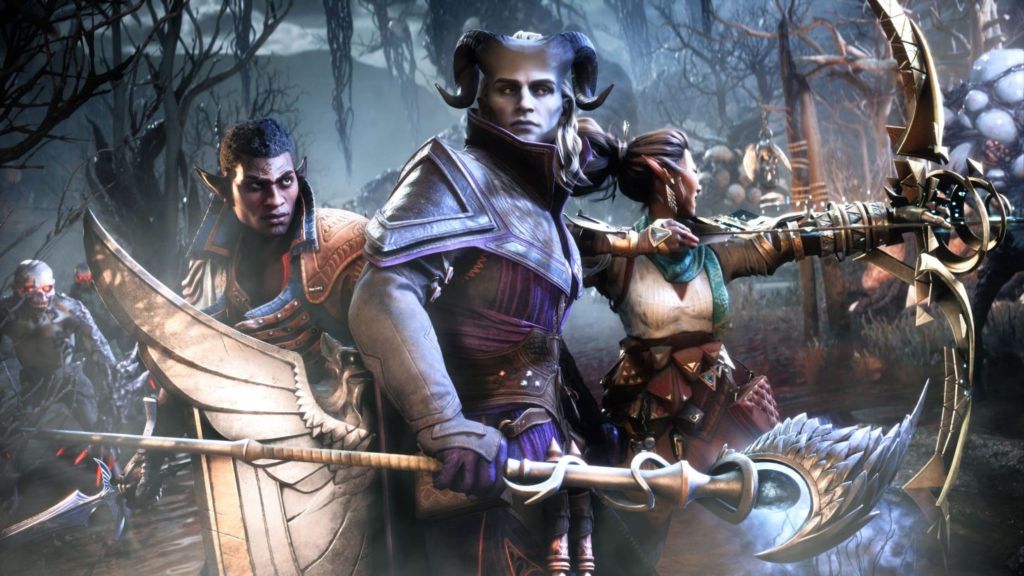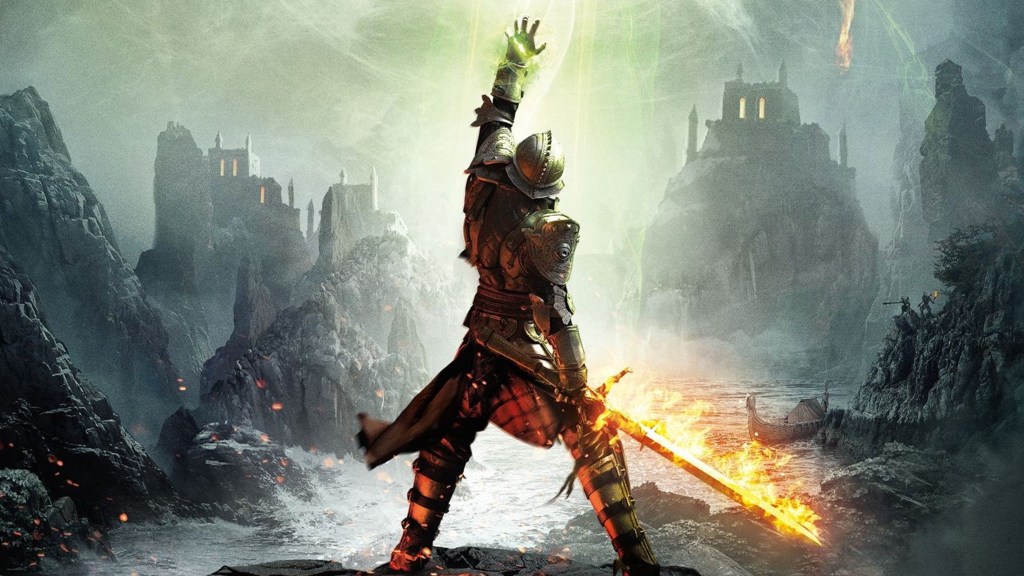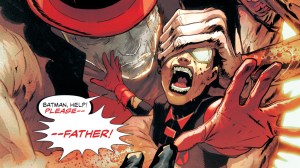Dragon Age: Origins saw massive success when it launched in 2009, introducing gamers to the new world of Dragon Age. It was nominated for several awards and was received well by critics. But most importantly, fans fell in love with the new franchise. In the following years, the game saw two successful sequels in Dragon Age II and Dragon Age: Inquisition. But it all came crashing down with the dreadful reception of 2024’s Dragon Age: The Veilguard. But if BioWare’s earlier pitch for the franchise had gone forward, things could’ve been very different.
Videos by ComicBook.com
In a recent interview, former BioWare producer Mark Darrah revealed that the studio pitched a series of remakes and remasters ahead of Dragon Age: The Veilguard. Specifically, the studio wanted to remake the oldest game, Dragon Age: Origins, and remaster the others to sort of re-launch the franchise. But EA didn’t move forward with the idea. In light of Dragon Age: The Veilguard, that may have been a mistake.
Veilguard Failed To Resurrect Dragon Age

Dragon Age: Inquisition came out in 2014, a full 10 years prior to the release of its sequel. This alone was bad news for a franchise. While many longtime fans were no doubt eagerly awaiting a new entry, more casual Dragon Age enthusiasts likely fell off in that decade-long gap. Not only that, but the franchise didn’t have momentum from recent releases to bring new fans into the fold. For those who prefer to start a new franchise from game one, revisiting a 2009 release like Dragon Age: Origins can be a big ask.
These barriers might have been overcome if The Veilguard had been a stellar entry in the franchise. But many fans felt it fell short of its predecessors, even doing a disservice to certain characters and lore from prior games. The different animation style and a tonal shift also left many longtime Dragon Age fans feeling alienated by the new game. As a result, Dragon Age: The Veilguard didn’t manage to resurrect interest in the franchise. In fact, its poor sales and reception have likely put a nail in the Dragon Age coffin, at least for the foreseeable future.
When it fell short of sales expectations, The Veilguard was quickly discounted. And the game continues to see price cuts, despite being less than a year old. For many, the game’s departure from the franchise’s previous tone and style left the entire Dragon Age series tarnished. And that’s the opposite of what BioWare and fans wanted from the first new main series Dragon Age entry in 10 years.
BioWare’s Dragon Age Remaster Plan Could’ve Saved The Franchise

When fans wait for a game for 10 years, expectations are high. Those who stayed invested after Dragon Age: Inquisition waited a long time to see the next entry in the franchise. So, when The Veilguard didn’t quite meet expectations, the fallout was massive. Negative reactions from longtime fans, in part, prevented the series from gaining a new audience with the release of the game.
If BioWare’s original pitch for the franchise had gone forward, Dragon Age and its fanbase could’ve been in a very different place. With Dragon Age: Origins being 16 years old, many gamers who might love the series missed the original onboarding window. And while the game is available to revisit in the Ultimate Edition on Steam, a modern remake could’ve drummed up a lot more enthusiasm for new fans. With updated graphics and mechanics, a remaster can bring younger gamers into the fold, who might not be interested in the limitations of older games.
Remasters have been pretty successful in recent years, despite some missteps. The Elder Scrolls IV: Oblivion Remastered shadow dropped with no notice, yet it gained attention from returning and new Elder Scrolls fans alike. In fact, BioWare’s own remastered Mass Effect Legendary Collection performed well when it was released in 2021. It stands to reason that fans would’ve been similarly pleased for a chance to revisit the story that started Dragon Age, with new polish and streamlined mechanics for a modern era.
If a modern Dragon Age Origins remake had come out, it likely would’ve helped reinvigorate the existing fanbase for Dragon Age, while also introducing a new audience to the franchise. And the plans to remaster the sequels would have let a new generation of gamers experience the full story ahead of The Veilguard.
This would have helped tremendously in terms of sheer interest in a new Dragon Age game. But it also would’ve given BioWare more time to work on The Veilguard. As fans stepped back into the franchise, the studio could’ve pulled from modern reactions and reception to help shape the next entry. That might’ve helped them avoid missteps like erasing past decisions from prior games and shifting tone. Seeing how the franchise’s original story played with a modern audience could’ve been the extra intel BioWare needed to get its next entry right, even with a 10-year gap.
Unfortunately, it’s even less likely we’ll see a Dragon Age Origins remake or trilogy remasters now. With the failure of Dragon Age: The Veilguard, EA isn’t likely to test out new experiments with the franchise any time soon. But oh, what could have been.










